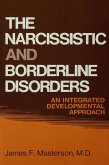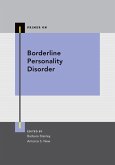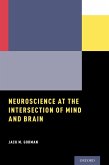The Fragmented Personality introduces a new model for diagnosing and caring for patients with personality disorder. This book reviews in detail the neuroscience of brain and mind development, including the neuroscience of psychoanalytic concepts, both for normal and disordered personalities. In contrast to the current static classifications of personality pathology, the authors' approach yields a dynamic and personalized diagnosis within a 3D diagnostic space in which each individual is uniquely positioned. In this model, two intersecting dimensions, one vertical, representing the person's qualitative level of mental functioning (the "how" of personality), and the other horizontal, representing his or her adaptive style (the "what" of personality) are cross matched in the unit of time. Such dynamic nosology is inherently sensitive to fluctuations in mental functioning over time and context, and gives the clinician precise milestones for monitoring progress in therapy. In this book, the authors analyze the impact of social transitions on adaptive tasks, personality and psychopathology. They argue that the conservative society, with strict socio-religious norms, favored the psychopathology of neuroses centered around guilt, including guilt for not fitting the preapproved norms. With the postmodern liberalization of normative pressures, the adaptive task has changed from "how to fit" into "what to choose" among many accepted alternatives, creating uncertainty of identity. This uncertainty, together with the non-directive society, favors the psychopathology of personality disorder, and indeed, the prevalence of personality disorder has increased in the postmodern period. Drs. Svrakic and Divac-Jovanovic argue that fragmented personality, a deep and early fragmentation of the mind at its nonconscious core of internalized object relations, represents a common denominator shared by all clinical variants of personality disorder. They conceptualize personality disorder as a homeostatic attempt by the fragmented early mind to heal itself by self-organizing into an unrealistic and fantasized but a more stable self-image, figuratively a "better any than no organization" strategy. In this invaluable text, the authors provide detailed practical guidelines for the diagnosis, differential diagnosis, and treatment of individuals with personality disorder and answer practical questions that clinicians frequently ask about etiology, psychotherapy and pharmacotherapy of the syndrome.
Dieser Download kann aus rechtlichen Gründen nur mit Rechnungsadresse in A, B, BG, CY, CZ, D, DK, EW, E, FIN, F, GR, HR, H, IRL, I, LT, L, LR, M, NL, PL, P, R, S, SLO, SK ausgeliefert werden.









